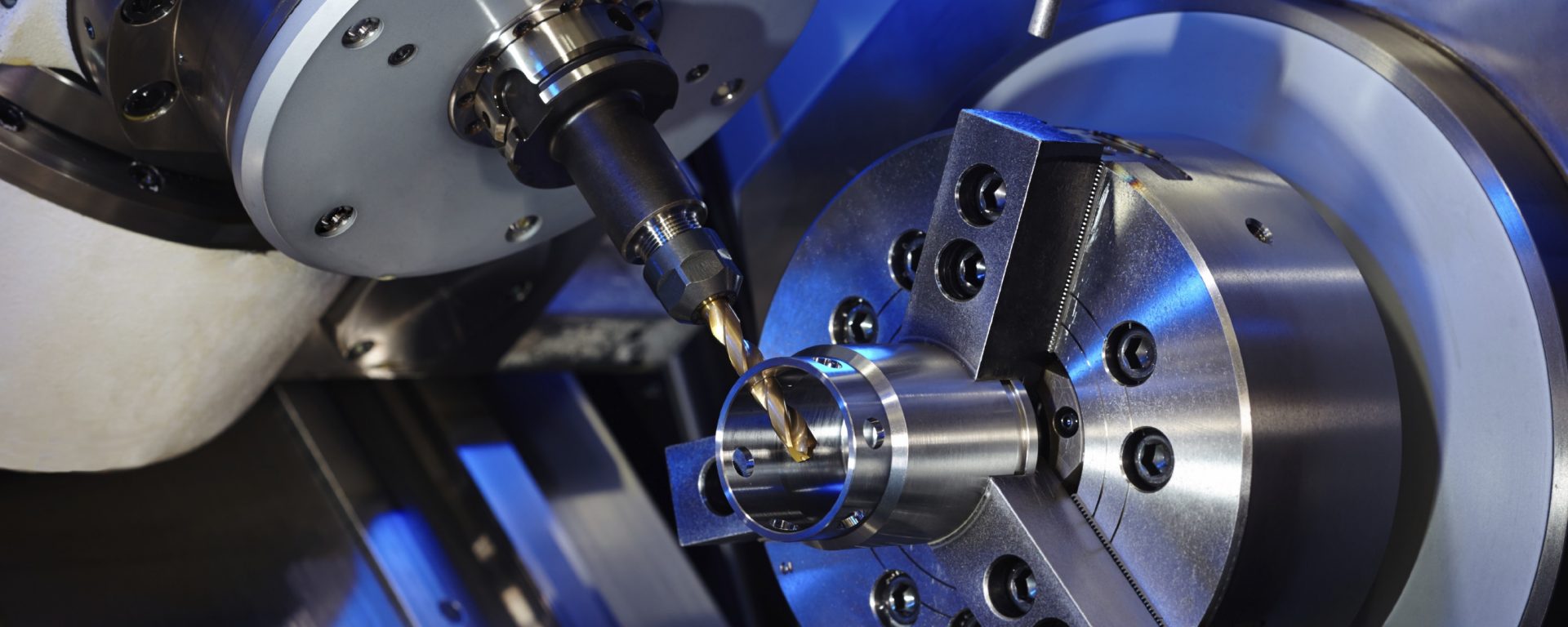From textiles, tools, and timepieces to aerospace equipment and beyond, manufacturing in Connecticut has long been an important part of the Nutmeg State’s history.
With automated technology and manufacturing advancements on the rise, companies and their employees seek to stay at the forefront of the progressions that allow their field to flourish.
In August 2019, collaborators of the Connecticut Manufacturing Workforce Development Initiative (CMWDI) circulated a needs survey to industrialized producers across the state. Manufacturers were asked to consider the specific types of training needed to develop their employees’ abilities to the level of competency required for the renovated industry.
In September 2019, Goodwin University used the information gathered from the survey responses in a U.S. Department of Labor grant application. The request proposed that, if the application were accepted, the awarded grant funds would help close the gap on the disconnect between the manufacturing industry’s needs and individual worker skills, ultimately strengthening manufacturing apprenticeship programs and the skilled labor force in Connecticut.
Assembling Apprenticeship Opportunities
In February 2020, Goodwin was the only institution in Connecticut to receive a congratulatory letter from the U.S. Department of Labor, awarding the University two million dollars for the “Apprenticeships: Closing the Skills Gap” grant over the next four years.
With the state-supported financing, the collaborative CMWDI will combine the collective efforts of Goodwin University, Connecticut State Colleges and Universities (CSCU), Connecticut Center for Advanced Technologies, Inc. (CCAT), manufacturers, industry associates, non-profit organizations, and other stakeholders. The CMWDI will fund training that will help meet manufacturing employer demand; support and expand existing apprenticeship programs; create new apprenticeship programs; and increase advancement and employment opportunities for industrialized personnel in Connecticut.
Constructing Career-Ready Workers
The initiative will implement a variety of four-week, 45-hour training classes. The courses will take place online, on-campus, or in Goodwin’s Advanced Manufacturing Mobile Training Lab. The initiative’s innovative online platform prepares apprentices to access their academics at any time. Apprentices who complete the program will receive a certificate of completion from their respective training provider and obtain the credentials and confidence to carry them throughout their careers.
Apprentice workshops offered include:
- Advanced Blue Print Reading and GD+T
- Automation and Robotics
- Basic Blueprint Reading and Shop Math
- Blueprint Reading Fundamentals
- Electricity I
- Electricity II
- GD+T and Geometry
- Introduction to Composites I
- Introduction to Composites II
- Introduction to Manufacturing and Quality
- Manufacturing Maintenance
- Non-destructive Examination I
- Non-destructive Examination II
- Non-destructive Examination III
- Production Techniques
- Quality Measurement Tools
- Shop Math and Geometry
- Team Building in Quality Management Systems
- Team Building Lean Manufacturing and Statistical Process Control (SPC)
- Understanding Six Sigma
Producing Positive Results
A total of 1,600 workers and 125 manufacturing companies with registered or non-registered apprenticeship programs across Connecticut will benefit from Goodwin’s “Apprenticeships: Closing the Skills Gap” grant. Eleven companies have already committed to participate.
“It’s an exciting time to be a part of team CMWDI,” Clifford Thermer, Goodwin University’s Assistant Vice President for Strategy and Business Development, and dean of the School of Business, Technology, and Advanced Manufacturing proudly stated.
“Advanced technology tools like our 180 skills virtual program and other distance learning platforms provide the opportunity to bring quality training to workers with flexible hours, coaching support, and limiting time off the shop floor. Increasing skills while fostering greater productivity is a nice support service to our manufactures as we work to rebuild the Connecticut manufacturing base,” Thermer detailed.
“And we still do things the old-fashioned way, too,” he added. “We still go to manufacturers and provide the same great training on-site, consistent with all the company’s safety protocols.”
Not only will the granted funds foster the manufacturing industry’s specialized skill sets, but the monies also allow Goodwin to advance one of its many missions to align education, commerce, and community.
Are you interested in learning more about the Connecticut Manufacturing Workforce Development Initiative? See how your company can do its part to close the manufacturing skills gap by checking out our CMWDI page!
Goodwin University is a nonprofit institution of higher education and is accredited by the New England Commission of Higher Education (NECHE), formerly known as the New England Association of Schools and Colleges (NEASC). Goodwin University was founded in 1999, with the goal of serving a diverse student population with career-focused degree programs that lead to strong employment outcomes.

